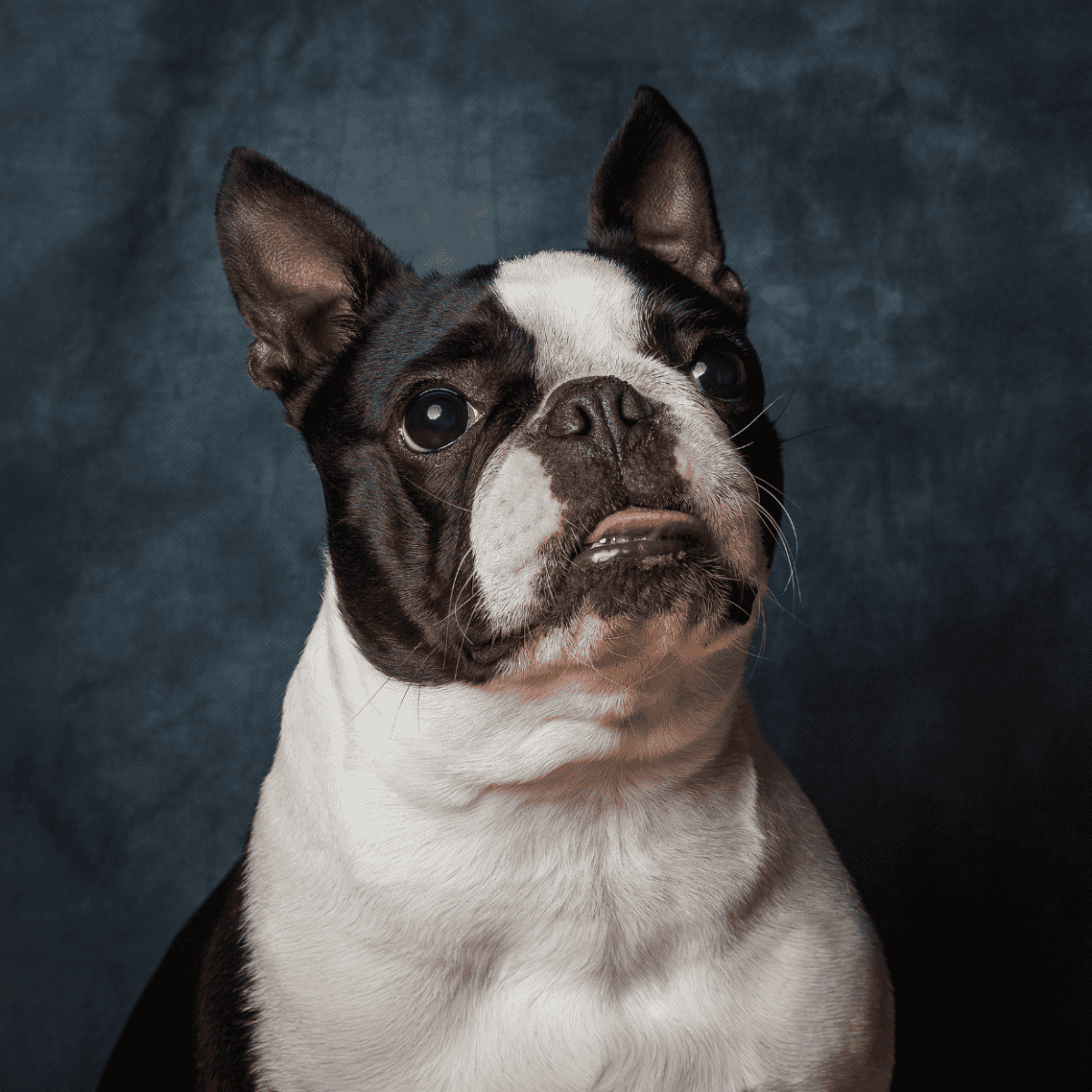
Boston Terrier
Shortcuts
Boston Terriers, known as “The American Gentleman” for their tuxedo-like coats, stand out with their stylish black, brindle, or seal coats accented by bright white markings. Their smart appearance, gentle demeanor, compact size, and friendly disposition make them perfect for urban life and a beloved family member.
These dogs are natural comedians, delighting families with playful antics and joy. Boston Terriers thrive on social interaction and adventure, ready for walks or outdoor cafe visits. Their blend of elegance and exuberance makes them a highly cherished breed today.
Breed Overview

Height
10 – 12 inches
Weight
12 – 25 pounds
Lifespan
11 – 13 years
Colors
Tuxedo, brindle with white markings, seal with white markings.
Suitable for
Urban living, active families with children
Temperament
Friendly, alert, sociable, curious


Height
10 – 12 inches
Weight
12 – 25 pounds
Lifespan
11 – 13 years
Colors
Tuxedo, brindle with white markings, seal with white markings.
Suitable for
Urban living, active families with children
Temperament
Friendly, alert, sociable, curious

Boston Terriers are compact and sturdy dogs known for being friendly, intelligent, affectionate, and gentle. They make great companions for children and other pets. They require moderate exercise, have low grooming needs, and are generally healthy but prone to respiratory issues.
Characteristics
Energy

Health

Sociability

Trainability

Lifespan


Enjoying this read?
We publish this content for free to generate interest in our Premium members' area. By subscribing, you can ask the writer any questions related to pet care and this article, get access to 100+ Premium Pet Care Guides and go Ad-Free with DogFix Premium for $2.99.
Health Conditions
Boston Terriers may face specific health issues due to their unique physical characteristics. Their short snouts, also known as brachycephalic features, make them prone to breathing difficulties. It’s common for these dogs to experience noisy breathing, snoring, and excessive panting.
Minor Conditions
- Cherry Eye
- Snoring
- Luxating Patella
- Dry Eye (keratoconjunctivitis sicca)
- Deafness
Serious Conditions
- Brachycephalic Syndrome
- Hemivertibrae
- Corneal Abrasions or Ulcers
- Heart Murmurs
- Cataracts
- Periodontal Disease
- Epilepsy
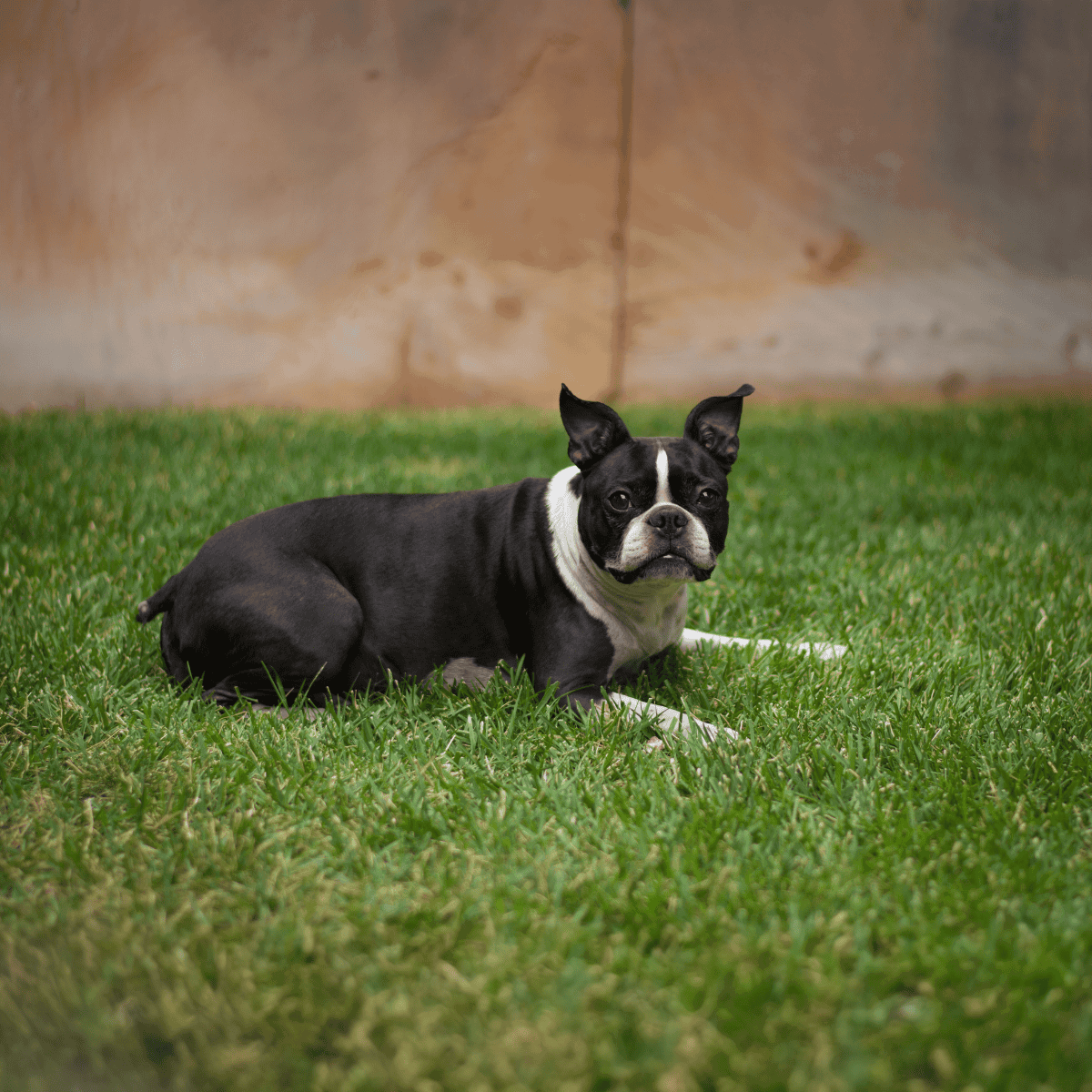
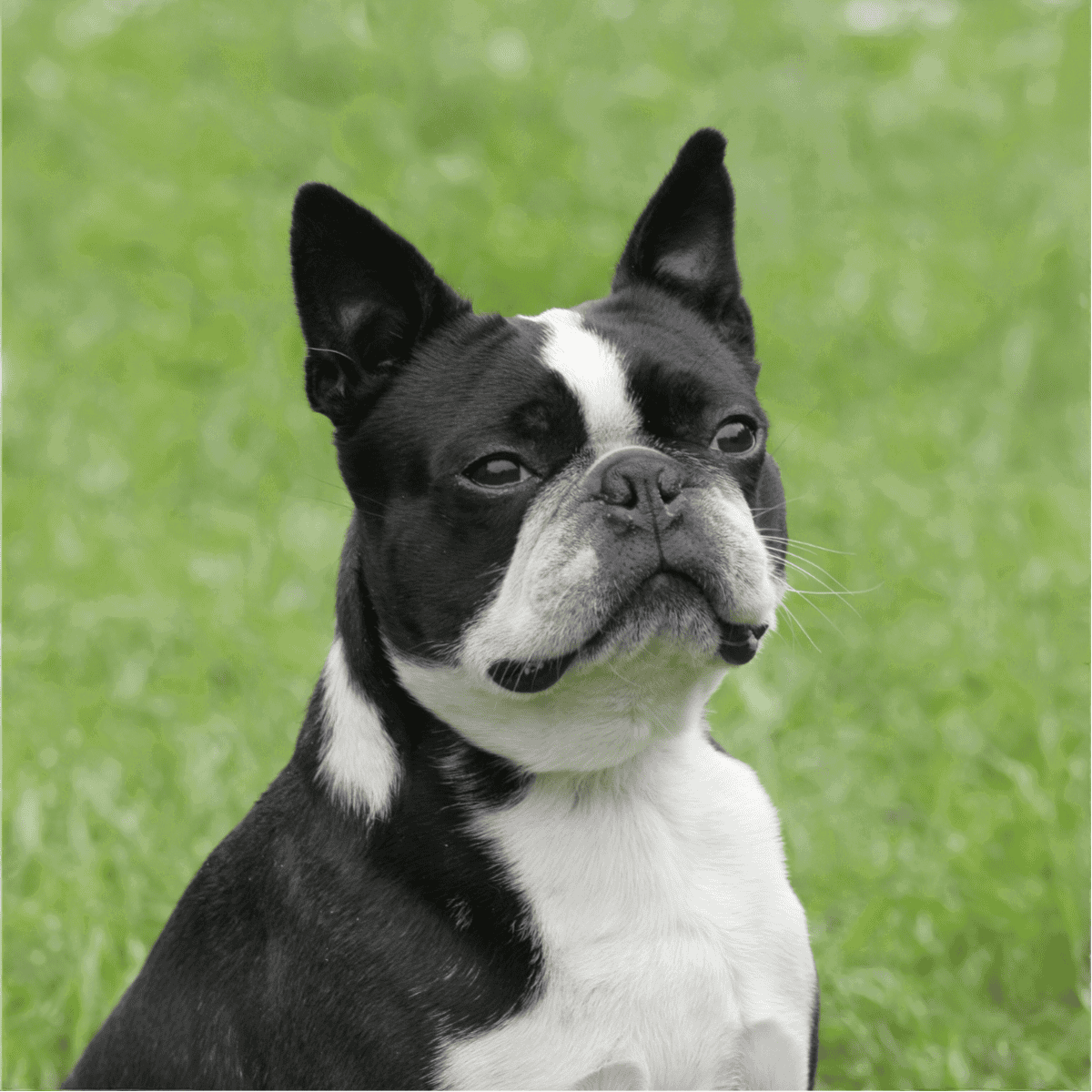
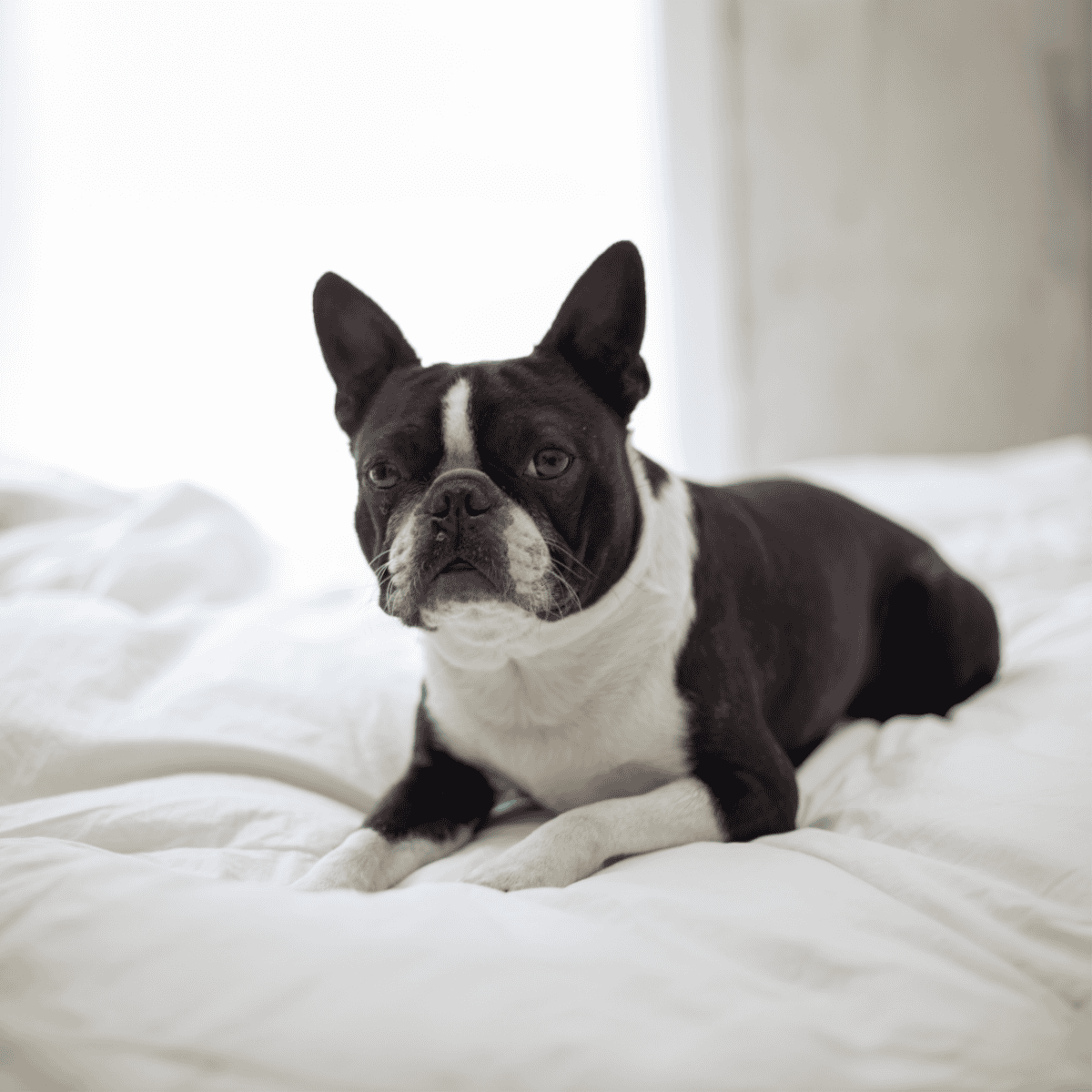
Boston Terrier Puppies
Boston Terrier puppies are charming little companions known for their friendly disposition and distinctive tuxedo-like markings. They are small, typically weighing between 10 to 25 pounds, making them ideal for apartment living. With their playful nature, these pups are social and love to engage with family members, including children and other pets.
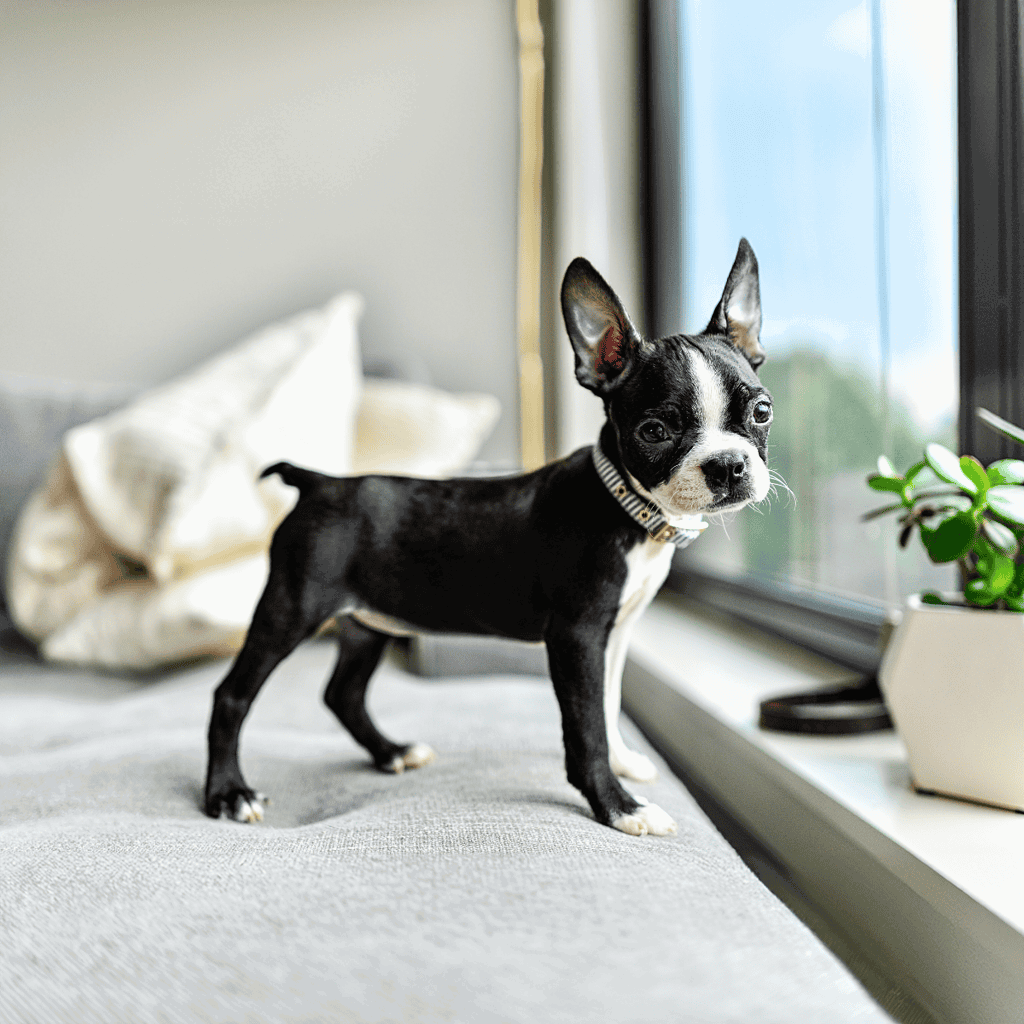
Their adaptability means they fit well in diverse living situations, from apartments to houses, and their comical nature brings endless entertainment and joy.
Temperament & Intelligence Of The Boston Terrier
Boston Terriers are renowned for their lively and affectionate demeanor. They make excellent companions for families and strangers alike. They thrive on attention and have enthusiastic and energetic personalities. Their intelligence and quick learning make training them relatively straightforward, though early boundaries are essential to managing their sometimes demanding behavior.

Despite their diminutive stature, Boston Terriers are surprisingly sturdy and resilient. Their spirited disposition significantly contributes to their undeniable charm and widespread appeal.
Are These Dogs Good For Families?
Boston Terriers are excellent family pets due to their gentle and playful nature. They are sociable and friendly and form strong bonds with family members, often becoming especially close to one person.
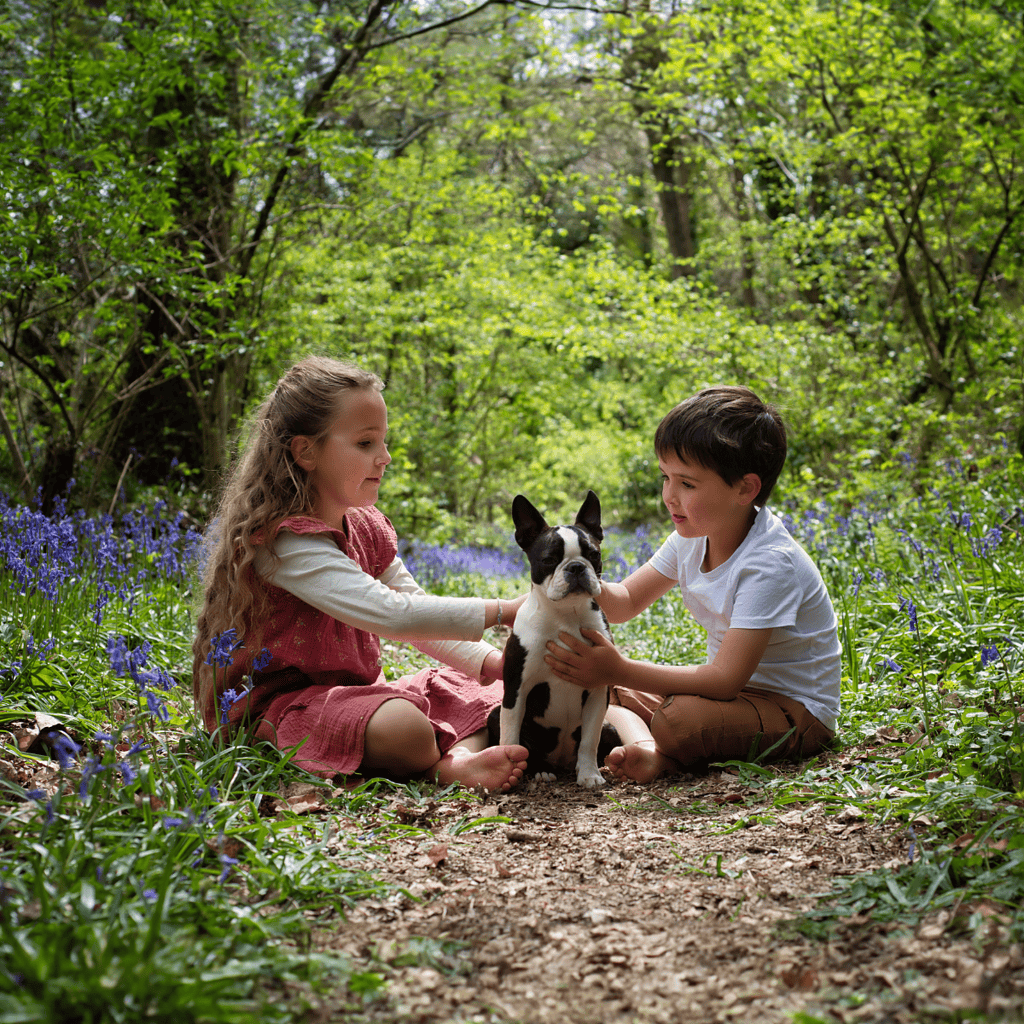
These dogs are characterized by loyalty, activity, and affection. They enjoy being active and love sitting on laps. Their high trainability and friendly disposition make them great with children and pets.
Does This Breed Get Along With Other Pets?
Boston Terriers are friendly dogs that enjoy the company of other pets, forming strong bonds, particularly when raised alongside them, including cats. Slow, safe introductions are key when they haven’t grown up together.
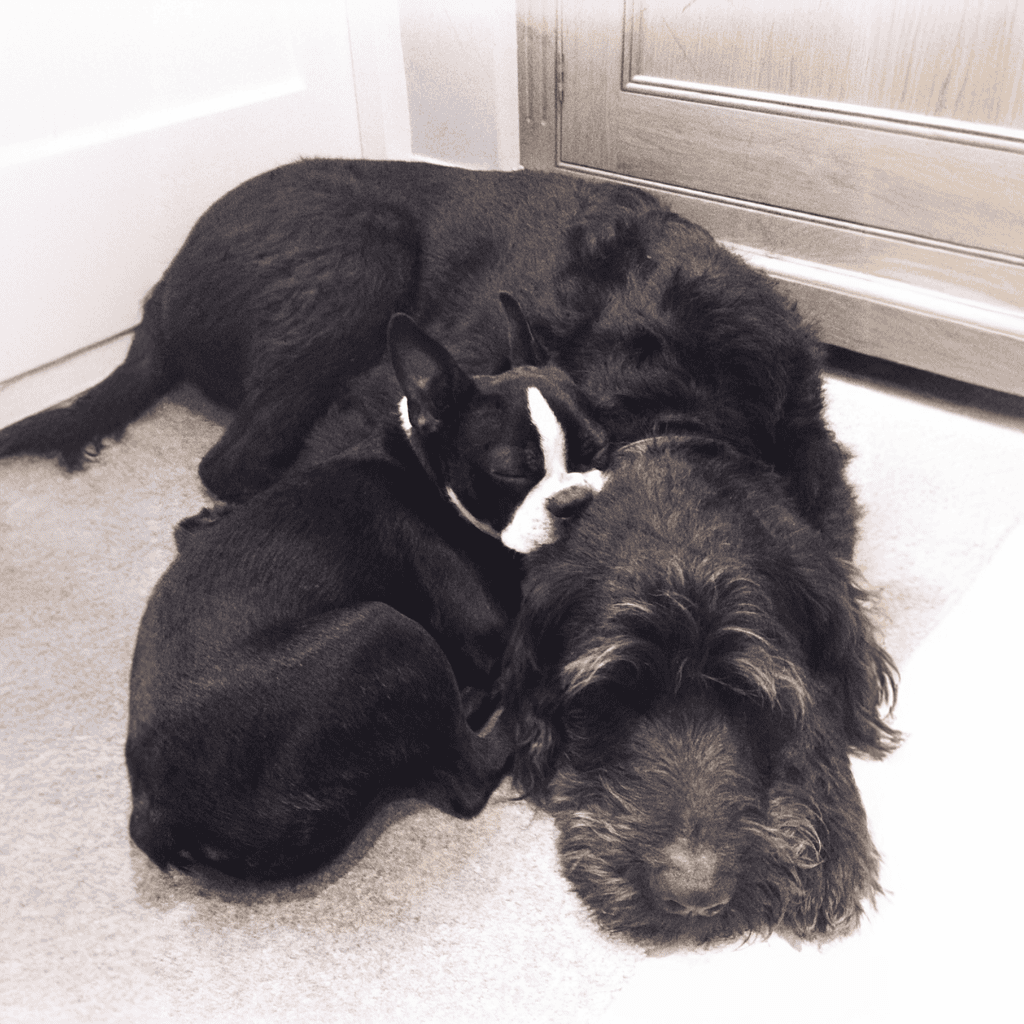
Their terrier nature might prompt them to chase smaller animals like rodents or reptiles, so it’s vital to always supervise their interactions with such pets for everyone’s safety. Gradual introductions help avoid stress or conflict, ensuring a harmonious relationship between pets.
Food & Diet Requirements
Boston Terriers need a balanced diet to stay at a healthy weight. Control portion sizes and limit treats to avoid obesity. Always consult your vet for personalized diet recommendations, and opt for low-calorie treats, especially during training sessions. Provide measured meals to prevent overfeeding.
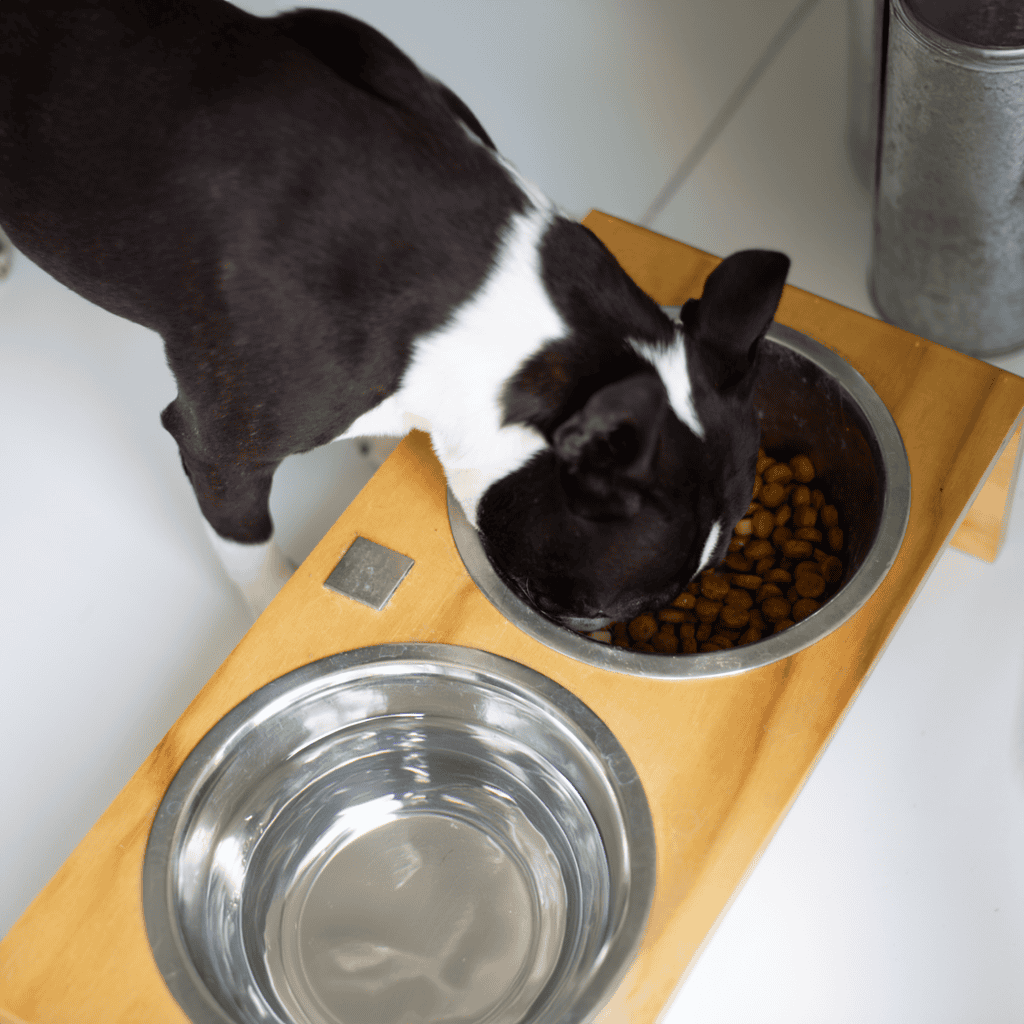
When planning meals, focus on high-quality animal protein, moderate whole grains for carbohydrates, essential fats, and a balance of vitamins and minerals as per vet guidelines. Regular veterinarian check-ups are crucial to ensure your dog remains at an ideal weight and maintains a healthy body condition.
Exercise
Keeping a Boston Terrier active helps prevent obesity and boosts joint and muscle health. They enjoy various physical activities tailored to the owner’s and dog’s preferences. Due to their flat faces, Boston Terriers may face breathing issues and are heat sensitive, so exercise should be adjusted accordingly.
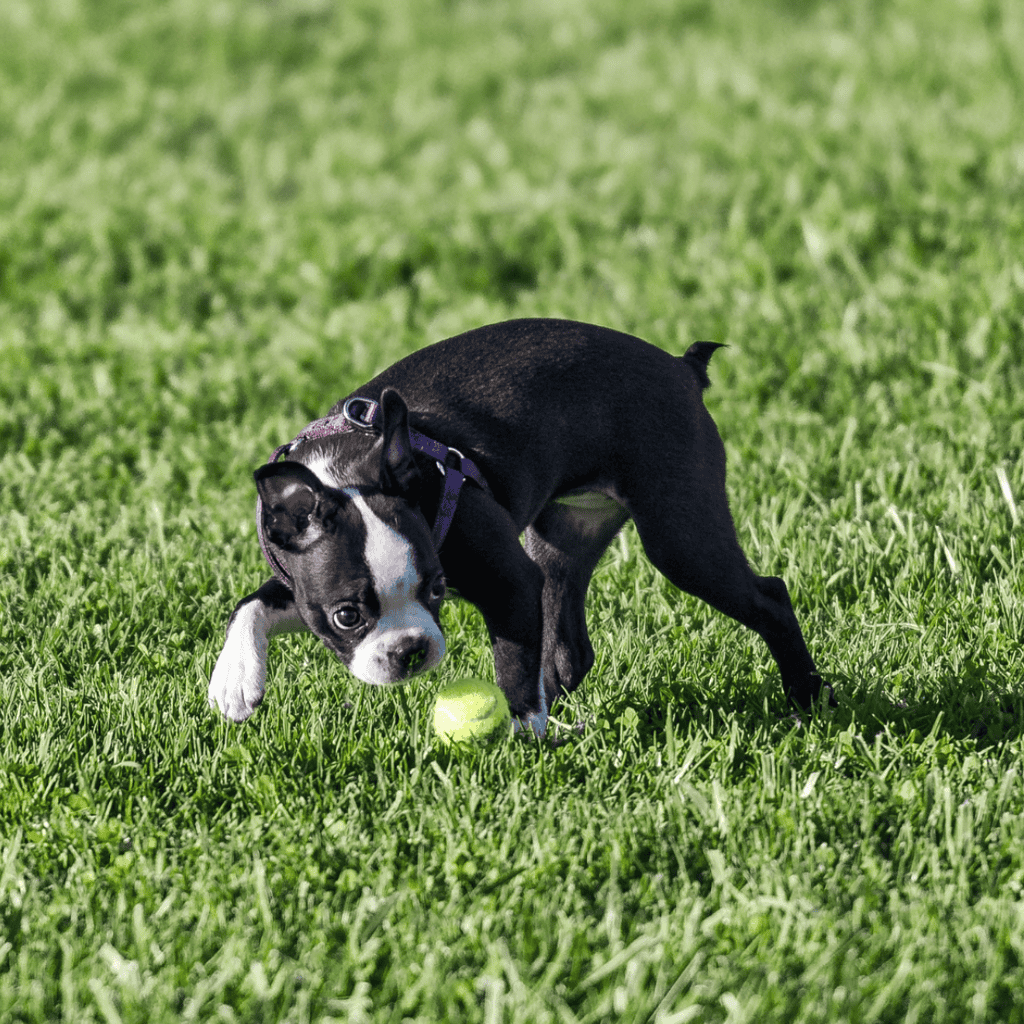
Sports like agility and flyball can offer mental and physical stimulation for Boston Terriers. If a dog is overweight, consulting a vet for a tailored exercise regimen is crucial. Gradual increase in activity is advised to avoid harm, particularly for brachycephalic breeds.
Training
Boston Terriers excel in training when it is consistent and engaging. Their desire to please, combined with a bit of stubbornness, means training techniques must be adaptable, using positive reinforcement like treats and praise. Short, exciting sessions help hold their attention, starting with basic commands and advancing as they are mastered.
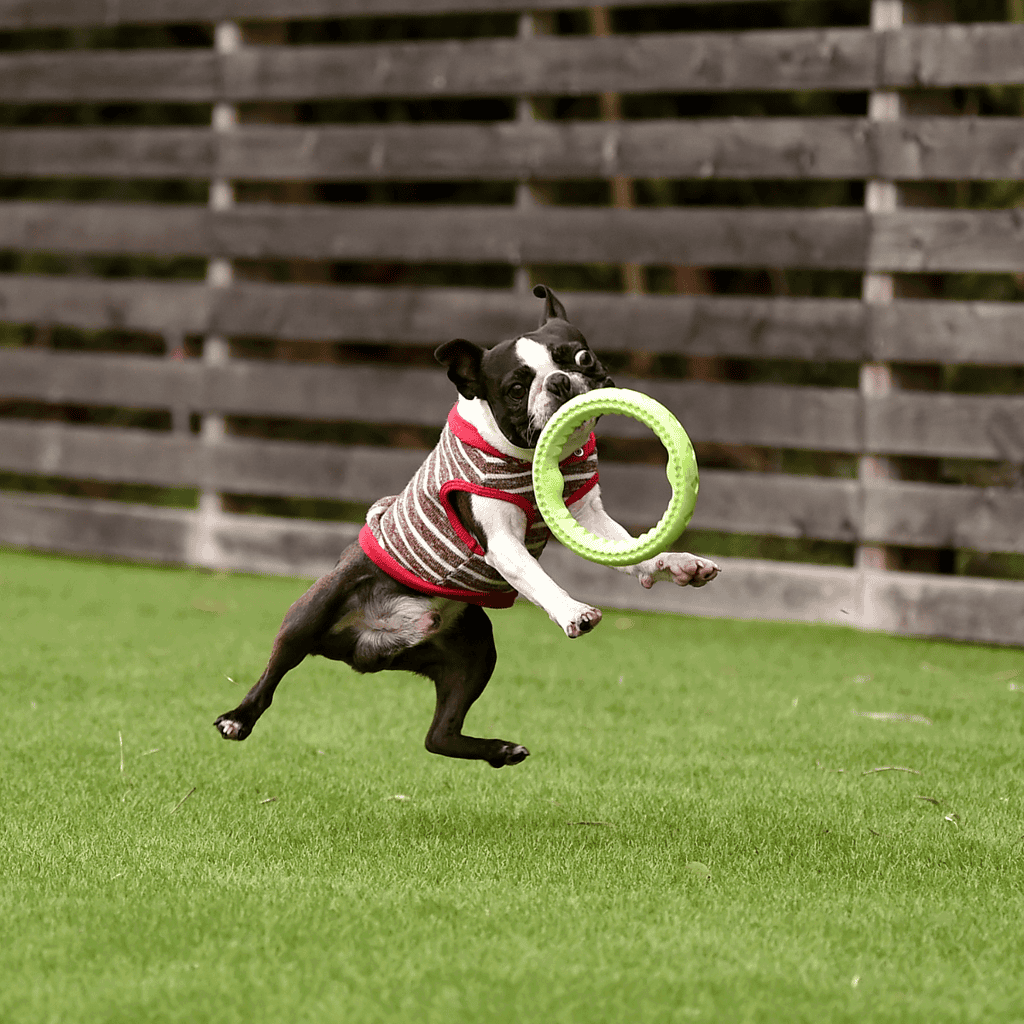
Socialization and house training are crucial for a well-rounded Boston Terrier, exposing them to various environments and maintaining a regular schedule. Additionally, they thrive in agility and obedience sports, which offer physical and mental stimulation. A training checklist covering basics, socialization, and advanced goals keeps track of progress, fostering patience and creativity in training.
Grooming
Boston Terriers have short coats, making grooming straightforward. A weekly brushing helps eliminate loose hair and dirt and stimulates oil production in the skin, ensuring a shiny, healthy coat. Bathing should be done every 2-4 weeks or more often for health or hygiene reasons.
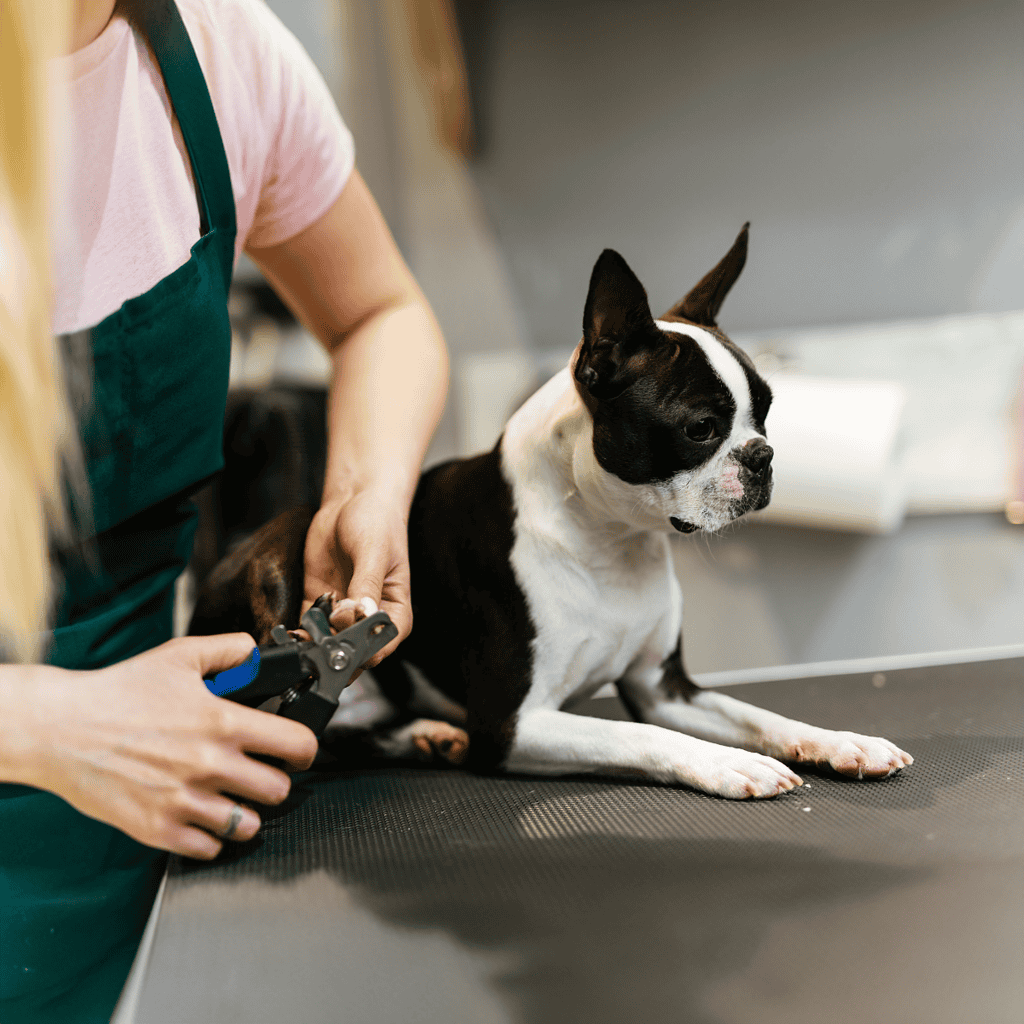
Regular grooming of your Boston Terrier offers multiple benefits. It not only removes loose hair and dirt but also maintains the skin’s oil production, keeping the coat in a shiny and healthy condition. Stick to a weekly brushing and bathing schedule every 2-4 weeks for the best results.
Male Vs. Female
Male Boston Terriers are known for their sociability and strong familial bonds, making them perfect for those seeking a dedicated companion. Their friendliness and loyalty enhance their appeal as family pets.
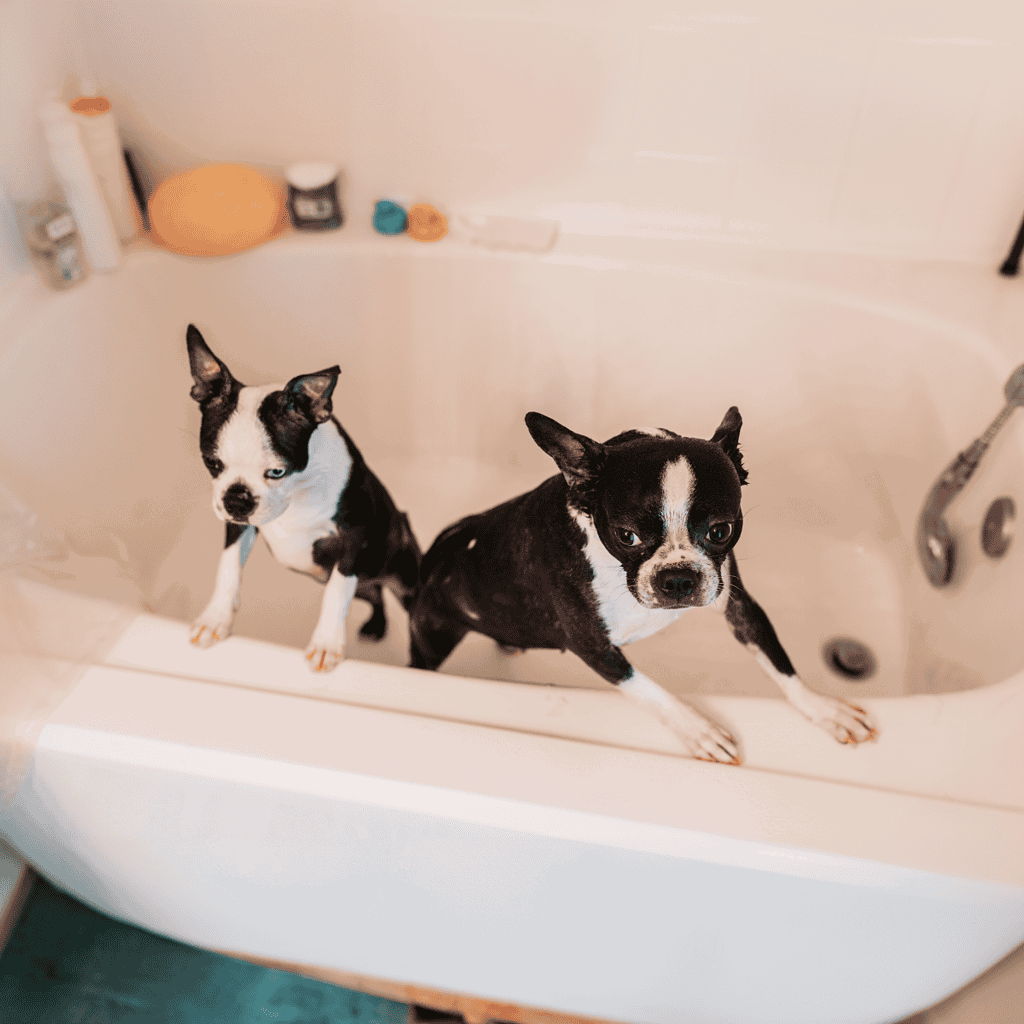
Female Boston Terriers, while more reserved, bring a quieter form of companionship with their sweet dispositions. They may require a calmer environment yet still embody the breed’s cheerful nature.
Fact #1: They Were Once Nicknamed “Roundheads”
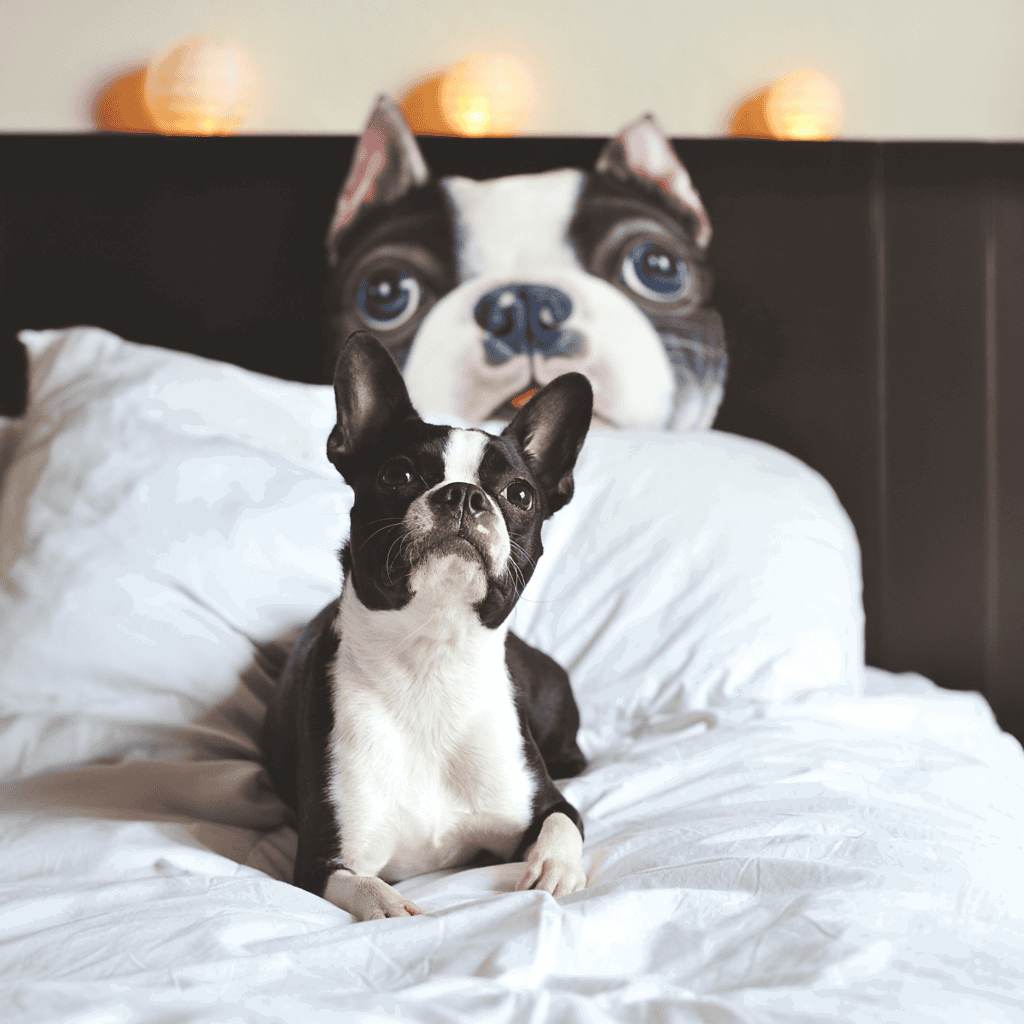
Boston Terriers have a unique history tied to their distinctive features. In earlier days, these dogs were often called “Roundheads.” This nickname came from their curved skulls and large, expressive eyes.
Fact #2: Helen Keller Owned a Boston Terrier

A prominent educator and activist, Helen Keller, owned a Boston Terrier named Sir Thomas, affectionately known as “Phiz.” Phiz would join Keller during her lectures at Radcliffe College, providing her with companionship and likely emotional support during significant moments in her academic pursuits. This connection between Keller and her Boston Terrier showcased the breed’s loving and loyal characteristics.
Fact #3: The Breed Became Popular in Boston
In the 19th century, the Boston Terrier blossomed into a beloved pet among Boston’s Beacon Hill’s affluent community. Appreciated for their engaging personalities and compact stature, these dogs quickly won hearts. The rich and their coachmen particularly cherished them, the latter playing a crucial role in nurturing the breed to prominence.

Coachmen were instrumental in caring for and integrating these canines into the elite’s lifestyle. As their popularity soared, Boston Terriers became familiar, embodying the ideal city companion with their friendly nature and adaptability.
Final Thoughts
Boston Terriers are an excellent choice for city residents looking for a vibrant and adaptable pet. Their small size and lively disposition are perfect for urban life. It’s important to know, though, that due to their flat faces, they might need more specialized care and are at a higher risk for specific health issues than other small breeds.
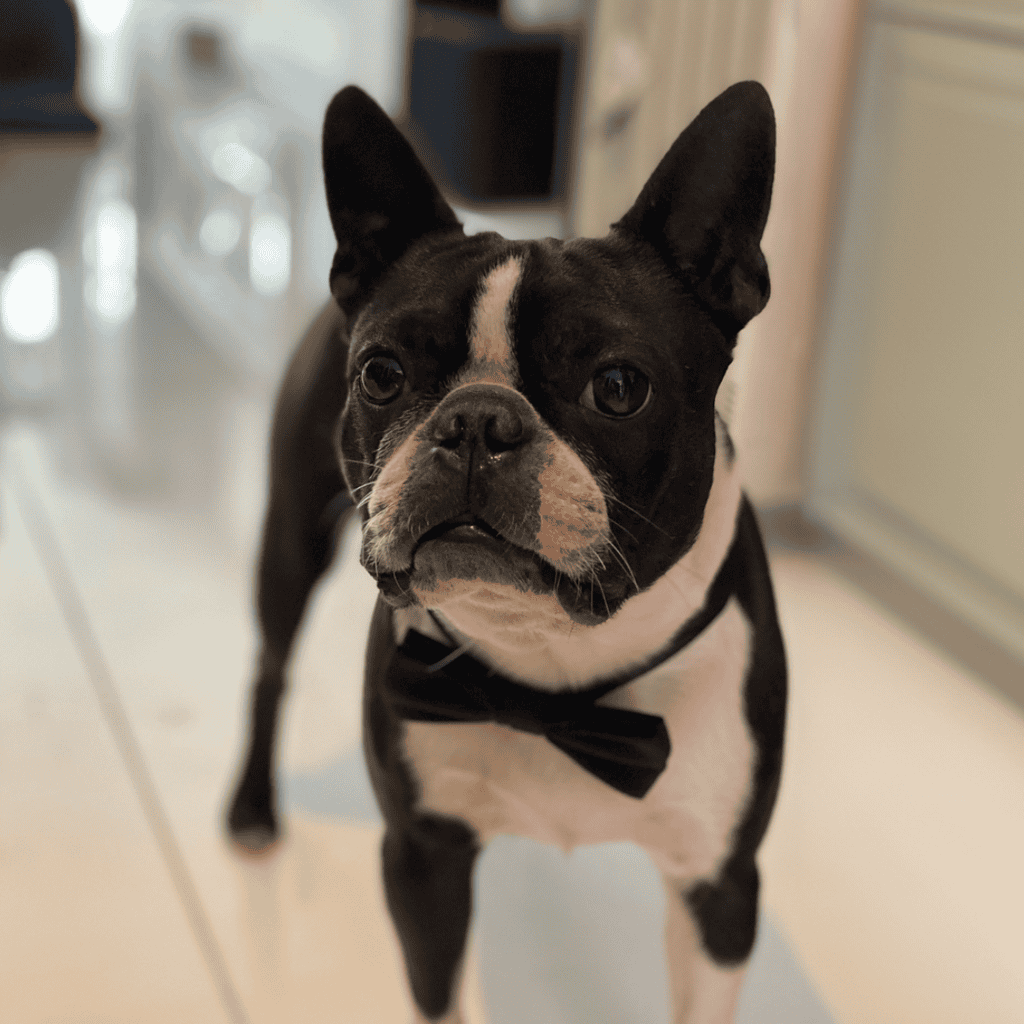
These dogs are ideal for active households, flourishing in city environments where they can participate in various activities. They make exceptional companions in a suitable environment and with the proper care.
Frequently Asked Questions
What is the average weight range for a Boston Terrier?
Boston Terriers typically weigh between 12 and 25 pounds, but their weight can vary based on diet, exercise, and overall health.
What personality traits are typically seen in Boston Terriers?
Boston Terriers are known for being friendly, lively, and intelligent. They often form strong bonds with their owners and are usually good with children and pets.
How long do Boston Terriers generally live?
The average lifespan of a Boston Terrier is between 11 to 15 years. Proper care, including regular veterinary check-ups, can help extend their lives.
What are the standard size dimensions of a Boston Terrier?
Boston Terriers generally stand 15 to 17 inches tall at the shoulder. Their compact size makes them suitable for apartment living and homes with yards.
What variety of colors do Boston Terriers come in?
Boston Terriers come in several standard colors, including black and white, brindle and white, and seal and white. The breed is known for its distinctive tuxedo-like markings.
How often do Boston Terriers require grooming?
Boston Terriers have short coats that require minimal grooming. Regular brushing and occasional baths are sufficient to keep their coat clean and healthy.

Didn’t find what you need? Use the search!
Search our database of over hundreds of posts with up-to-date information from our experts and veterinarians.

